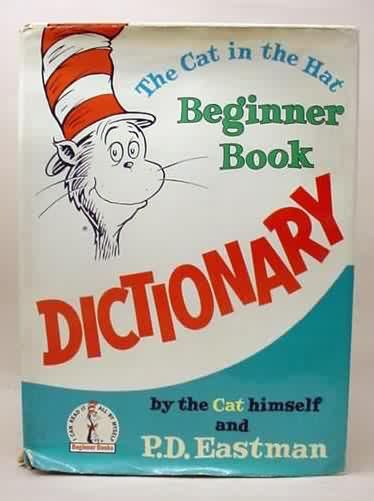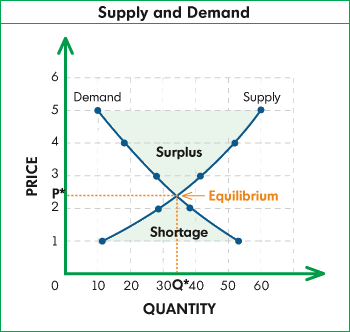The Story of Greatness
 •
by
•
by Arthur VonShope

What is greatness? People have different ideas about greatness. A few things are generally accepted but nothing is universal: Emerick is great, for example. For my first article ever, I thought I'd talk a little bit about being great.
I've been asked a few times to write articles about business, and recently about erep economics. The latter can get so convoluted in discussion sometimes it is hard to tell which way is up. What I endevour to do here is talk about basics: the fundamental things about our erep economy that mandate how our markets work. Without understanding the starting point and the ground rules we can apply almost any economic idea any way we like and rationalize it into something that sounds "great". But how well an idea performs in the market is not a function of how well we can rationalize concepts. It is a function however, of fundamental market forces that are real and decisive. So whether your a supply-sider or a Keynesian, a free market cheerleader or a socialist ideologue, if your goal is to have real effects on our e-conomy you must acknowlege the real e-world we operate in to be great.

First, definitions:
Production, supply, demand, consumption: words are thrown around in these discussions and often one word is used when another would be better. To increase the effectiveness of our conversation, definitions are in order. I do not claim these to be RL definitions established and used in RL economics. These are only my definitions which apply to this conversation about erepublik.
Production: this is simply the result of labor, products produced. We can talk globally or domestically.
Consumption: Goods that are actually consumed and thereby removed from the system. Consumption can also be in the form of product shrink.
Supply: the goods on our market and in our inventories waiting to be sold. Supply may be increasing or falling while production is relatively constant.
Deman
😛The amount of goods that are bought on our market.
Product Shrink: Products effectively removed from the system due to players quitting or abandoned inventories, etc.
Gold contraction(or sinks): wealth removed from the system due to training, upgrades, quitting, etc.
Gold expansion: Gold from medals, purchases, downgrades, etc.
Hoarding: Holding currency and gold can act on the system just the same as a gold sink, but when the gold and currency is spent we will get the balance as it will act as an expansion.

eLife is not a rock and a hard place. Neither is erep e-conomics. It is a about equilibrium and balance. In RL we have market barriers, scarcity, unemployment, etc. In erep we have very little of this. We have a universal currency that superceeds all local currency. We have markets which are effectively open regardless of tax schemes. We have almost perfect competition between companies and to a great extent between marketplaces. What does all this mean? It means the balance and relations in our economy are simply not subject to all the same bells and whistles we have come to expect from RL experience. There are few intricate machinations from our world that will transfer to such a simple and perfect system. The system runs almost purely on the balances between production-consumption, Supply-Demand, Sinks-Expansions and their relations to each other. So lets dig into these balances and relations to find what we drives them.

Work sucks. But not on erep. In fact, working is the primary thing citizens do from day one. It takes a single click and its done. No OT(yet), no half days-sick days- or down days: consistent, reliable, ongoing production. Working most days and maintaining high efficiency are so easy that almost everyone does it. In fact if you are doing anything at all on erep, you are going to be working. Our system starts here: at PRODUCTION. What we produce determines the upper limit of what we can consume. In order to maintain balance, consumption will neccesarily chase production. So again, production is the primary variable in our economy. This is with one somewhat major caveat:

Gold expansion and contraction. This is the secondary factor exercizing influence on our economy. It is seconday because the products must be produced first, in order to be consumed. When we have gold expansion prices trend upward as production can not increase yet prices can and will. When we have gold contraction prices trend down as production can not decrease but again prices can and will. This means on a global scale consumption is still limited by production, but on a national or personal level it is not. For example, if one country has gold expansion while another has gold contraction: prices of products vrs gold will be steady, with one country being more powerful and needing to import due to more consumption, while the other will be weaker and need to export due to lowered consumption. The relative gold expansion and contraction between individuals and countires is what causes surplusses and deficits in trade. Relative expansion promotes importing and higher prices, contraction promotes exporting and lower prices. For this reason trade deficit is great, surplus is weakness!
When a major new sink is introduced into the system the whole globe experiences gold contraction. Product prices can not be maintained because the balance between production and consumption is altered by the pressure. No tax structure, no economic magic trick, no government policy can compensate for the imbalance. Consumption must follow production and the method for doing so is lower prices. A new balance will be achieved when products become significantly cheaper so that the consumption of them is again in balance with production. Greatness is consuming more than others, even during the time it takes for the market to adjust. Knowing that deficit or surplus in consumption comes from your relative standing in gold contraction, greatness is found in government policies that are geared to maximize spending on stuff rather than gold sinks.

After these two variables, everything else is peanuts. Meaningless. Might as well end the discussion here. But wait! This is where we start to gain more control in the matter. Granted what we can control has minor effect compared to the first two variables but lets go on; because greatness is found in the margins. I'm not a patriot. I'm not blind to the problems we have. But, I am an e-merican: and as such of course I want us to dominate the world by being as great as we can be.

Now we get to supply and demand. Things that by our definition are specific to our market, because this is really what we are concerned with right? Our market! Who really cares about global balances and global trends, mostly we care about us. Lets look at it from the production/consumption angle. Anything that makes us produce more effectively is a boon for our consumption and our strength and greatness as a nation. Remember we will consume in balance with our production adjusted by relative gold expansion/contraction. One of the best ways to increase production is to work healthy. The eUS has wars or training wars enough to afford ample opportunity to stay healthy. Not only do we have opportunity, we have incentive. Lower import taxes provide much incentive for us to be healthy and efficeint. Remember when you could work at 80 and not get fired? Those days are over. If your not working at 95+ your in great danger of firing every day. This too makes us great! The low import tax also pushes our workforce into the most relatively valuable products. Ever tried an american grain company? Then you will understand what I mean.
We must remember that not only does our supply include imported stuff(market or black market), but our demand includes exported stuff(market and black market), and the balance between imports and exports is dependent on relative gold expansion or contraction(as compared to other markets). With global markets being essentially open regardless of tax policy, prices in a market our size will be strongly tethered to a globally competitive price in gold. So take a look at the above graphic and lets see what we can glean, given what we know about basic erep economics. The price being tethered to a value outside of our local supply and demand means any shift in one curve is soon met with an equal and compensating shift in the other. Think hard before you refute this because you don't like it. Increasing imports will necessitate an increase in exports in order to maintain the appropriate balance. Also decreasing imports will necessitate an decrease in exports to maintain balance. Whatever policy is in place the market will compensate. Again because the trade deficit or surplus is mandated by relative gold expansion between markets not tax policy. The channel through which this balance is acheived is mandated by tax policy, but the market will find the balance none the less. With high import tax the balance is achieved through lower exports and lower imports and black market activity. With low import tax the balance is acheived through higher imports and higher exports with products moving more freely on the market. The second ption is preferable in that products are more readily available in times of high demand, relatively cheaper in high and low demand, and market pricing is more consistent. Right now eUS holding the line on low import tax, and this is great!

But how can we be great when we put our people on the rack of high income tax. Aren't we individualistic, small government, freedom loving types who want to keep our freaking money? Well, yes- BUT. What about complete world domination? What about crushing our enemies? What about making sure our enemies know they won't be crushing us any time soon? Training wars? Noob programs? Military spending? In all this talk about perfect competition and open systems where barriers are easily circumvented, it is actually hard to avoid income tax. Who wants to donate 10 paychecks every day for someone elses benefit? If employees could avoid the tax on their own, they would circumvent this tax too. We can't and we don't. So in the end, our government collects much more efficeintly than most other governments, and we have the ability to be a stronger player on the world stage. Economically, the current government has a clear preference for spending on stuff, citizens often hoard. So this little transfer of funds makes us great.

Sales tax or VAT. You mean I have to pay more tax to spend what money you didn't already take? VAT doesn't effect production or consumption. But it does effect supply and demand, in that it effects how many of the worlds products will be bought and sold on your market. It will not change the trade deficit or surplus because market pressure will compensate. Higher VAT moves global purchases away from your local market decreasing both supply and demand. Lower VAT will capture international sales and therefore also increase supply and demand. By lowering VAT and thereby increasing the size of our market, we effectively tax people not living in the eUS for purchases made on our market. Lowering it will lower the tax burden on our citizens and tax a larger share of the worlds consumers, albeit at a lower rate. Moving the VAT to 2% would make us even greater.
In conclusion:

edit: read this great article
btw, Buck, I do absolutely think we have further adjusting before things level off. The sooner the better!


Comments
Farkin images, First denied...
This Story is Great!
Voted and Subbed!
http://www.youtube.com/watch?v=SkzV5AIK8iM&NR=1" target="_blank">http://www.youtube.com/watch?v=SkzV5AIK8[..];NR=1
Good article more plz
GREAT Article!
More please!
Honestly didn't read everything but you are a good guy, good luck!
You hit the nail on the head. Fantastic article! Voted and Subbed!
wow.. first shot and you hit it out! Nicely done Arthur!
Good analysis, even if the conclusion is premature imo. 😉
Thanks for the kind words people.
Buck, just read your article from yesterday- awesome!
tl;dr
I have no idea what you said but I agree completely.
[removed]
tl; read it all.
"What we produce determines the upper limit of what we can consume." Not entirely true. Production has constant, daily growth, consum varies in steps of consum units, and has a definit limit. Production is limited by numbers of players and companies. But I think we are still far from forcing that limit.
"BUT. What about complete world domination? What about crushing our enemies? What about making sure our enemies know they won't be crushing us any time soon? Training wars? Noob programs? Military spending?" - that is simply government propaganda. Military spending ? The military at its top will be all of us. Some people have just feeble resistance to power coruption. I know, its part of the game, why wouldn't they do it ? And powerful economy will compensate for temporary the republik's tax income drop. We just have the trust more that our god is the economy.
e-civil: Thanks for reading and commenting.
We can't consume more goods than we produce, if we produce more we can and will consume more. Production is the limit of consumption. This article doesn't address corruption, but should we have no government just to avoid corruption, and should have no military so that all of us can be the military?
Beeing ernest: wages going down (and so my gameplay satisfaction) made me think if simply the income taxes aren't forcing economy down. Income taxes are partly used for the established military.
What if the nation's total damage growth isn't best managed with such a division: military and the others ? I dont think someone did such an estimate: if we train all of us, wouldnt we get a faster growth for the total nation's damage ?
If this is the case, a military group is just a result of, lets say, missunderstanding (if not missunderstanding ... and here we get to the corrpution part).
Thanx ... trying to understand - and make more of my game 😉.
Grrrrrrr-EAT!
Arthur, we've discussed much in private via PM and I totally agree with your concepts and definitions in this article. This has to be, bar none, one of the best primers on eRep economics I have ever read. Our collective problem is that emotion and impatience often gets the better of us. I too am in the group that believes we need to change our system of taxation (slightly, not dramatically). The eUS has NATIONAL and COLLECTIVE economic goals that sometimes appear to conflict with personal interest. And therein lies the rub.
Great article.
This is my rub also PiZ, its not our policy that needs work so much as it is our PR. There is some justification to the discontent in that we have a govt that is willing to set itself up in direct competition with its constituency in many ways. I will do an article on this topic soon!
"No tax structure, no economic magic trick, no government policy can compensate for the imbalance. "
That needed to be said. We have had some really silly comments that seemed to be saying something to the contrary. All that is left is small tweeks to give a small edge with what we have. My recommendation to everyone is to make money. I have a couple small ideas but nothing that is going to change any equilibrium.